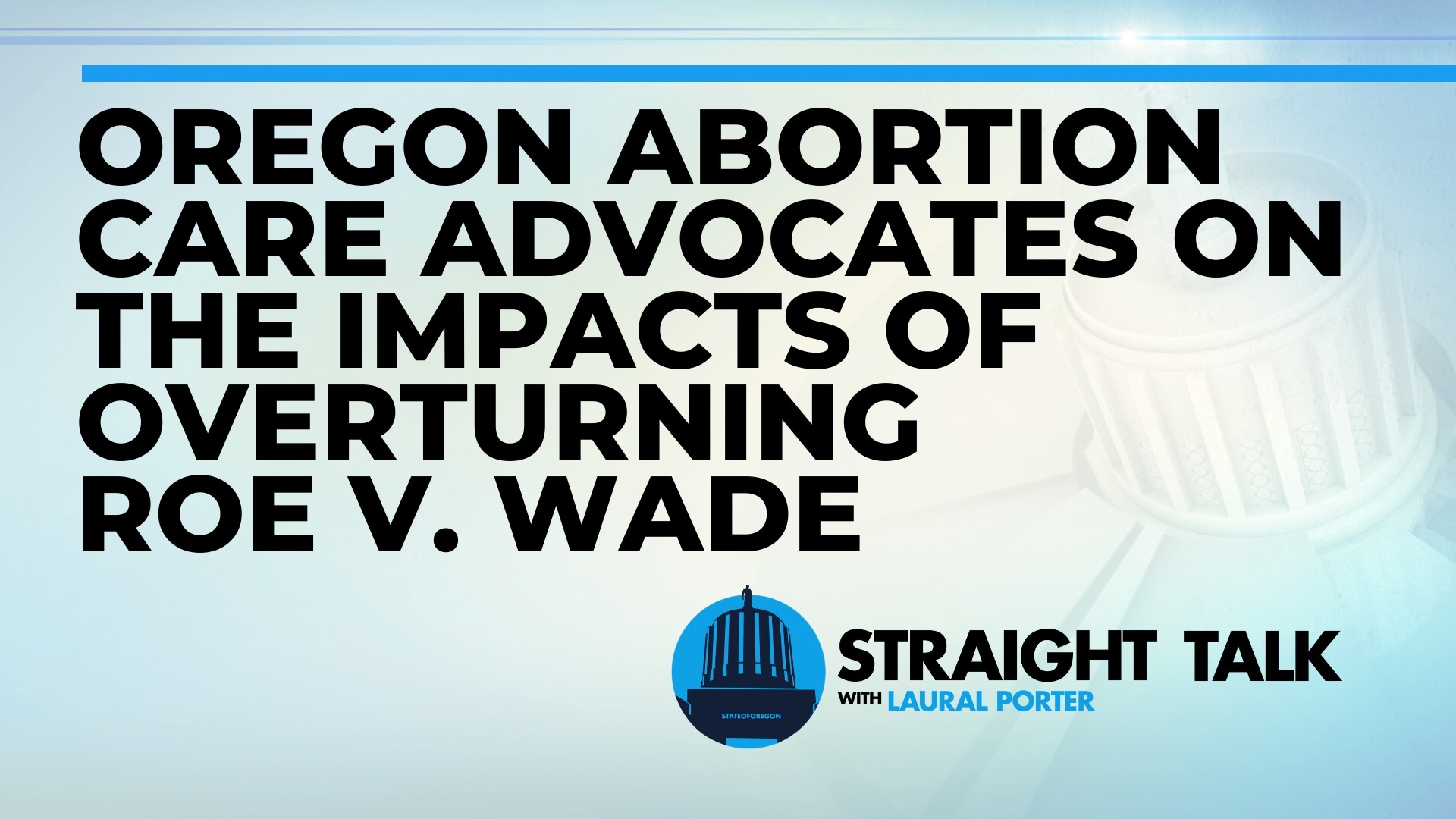PORTLAND, Ore. — Oregon and Washington have robust laws protecting the right to an abortion, but local abortion care advocates believe the Supreme Court decision overturning Roe v. Wade will have a significant impact in those states as well.
Grayson Dempsey, a spokesperson for the Lilith Clinic, Oregon's only independent abortion clinic, said they are expecting a surge in patients from states where abortion is restricted.
"We know from the Guttmacher Institute, we are anticipating a 234% surge in patients. We are trying to serve those patients, as well as the people of Oregon. We have limited capacity right now when it comes to procedure rooms. When it comes to physicians to clinicians who provide care. So, all of us should be worried," she said.
Dempsey joined University of Oregon Associate Professor Alison Gash, a specialist in constitutional rights, and OHSU's Dr. Paula Amato on this week's episode of Straight Talk to discuss what happens next following the Supreme Court's abortion decision.
Impact on fertility treatments
Dr. Amato, a reproductive endocrinologist who specializes in fertility treatments, is concerned about how the ruling could impact fertility treatments and the status of frozen embryos used in those treatments.
"Some of the laws refer to life beginning at the time of fertilization and that could be interpreted as including the embryo in a Petri dish or in the freezer. So what are the implications for fertility patients and providers," Amato said.
U of O's Professor Gash said there are states already considering laws that would give personhood to embryos.
"There's an actual case in Arizona dealing with personhood law wrapped up in their ban on abortion. That's on hold now as the federal courts figure out where the lines are, if there are any lines. But there are a number of states that are similarly passing those laws. So, it's just a matter of what comes next as Roe unravels," Gash said.
OHSU fielding calls about transferring embryos
Dr. Amato said laws defining an embryo as a person could result in fertility care providers creating fewer embryos which could lead to higher costs for patients and further increase barriers to fertility treatment. She said OHSU is already fielding numerous calls from patients in other states with abortion restrictions wondering if they should transfer their frozen embryos to a state like Oregon without restrictions.
"Right now, the guidance is just sit tight. Let's examine the laws and see what they actually say. Because there's a risk to transferring embryos, as well. You could lose them in transit. It costs money to ship them. There's a lot of anxiety for patients and providers," she said.
Impact on training medical residents
Amato also thinks the Supreme Court's decision overturning Roe v. Wade will impact the training of medical residents preparing to be obstetrician-gynecologists. She said half of the OB-GYN residence programs are in states that have so called "trigger laws."
"So, I think what we'll see a number of providers...who won't be trained in these procedures (abortion) and I don't think people realize the same procedures used for pregnancy termination are the same surgical procedures we use for management of miscarriage. You don't want to be in a state where your OB-GYN doesn't know how to do an emergency second trimester termination or management of a miscarriage," she said.
Potential increase in maternal mortality
Amato said she thinks the lack of training will lead to an increase in maternal mortality. The rates for maternal mortality are already 3.5 times higher for Black women than for white women.
"I think this will disproportionately affect women of color…. And frankly, I think it is going to impede gender equality,” Amato said.
Other rights at risk?
Gash said Roe v. Wade has been the glue that has tied together a number of civil rights around privacy. In Supreme Court Justice Clarence Thomas's concurring opinion overturning Roe v. Wade, he raised concerns other rights could be at risk such as contraception and same sex marriage.
"Already, we know Texas has decided they want to dust off their anti-sodomy statute and see if there are any legs to what Thomas has articulated. A state can decide, you know, we are going to start to follow Thomas's call to arms," she said.
Gash said even those who live in states like Oregon and Washington that have laws on the books protecting abortion and other rights shouldn't take anything for granted.
"Nothing can be taken for granted. We need to fight to protect every single solitary right that is at risk under this new judicial regime," Gash said.
Dempsey: “These laws are affecting real people”
In light of the Supreme Court decision overturning Roe v. Wade, Grayson Dempsey had a message for people about Portland's Lilith Clinic.
"I want people to know abortion is legal in Oregon and we are committed to treating patients who can get to Oregon. We are working to get people in as quickly as possible," she said.
Dr. Amato underscored the importance of the doctor-patient relationship.
"...the sanctity of the physician-patient relationship is based on the principle of patient autonomy and shared decision making and there is not room for lawmakers to impose his or her religious or ideological views on others," Amato said.
Dempsey called for compassion.
"A quarter of American women will have an abortion in their lifetime. I think we need to tell those stories. The need to show compassion and humanize this issue is so urgent right now, so that we remember these laws are affecting real people and denying care to the people in our lives," she said.
Straight Talk airs Friday at 7 p.m., Saturday and Sunday at 6:30 p.m.

